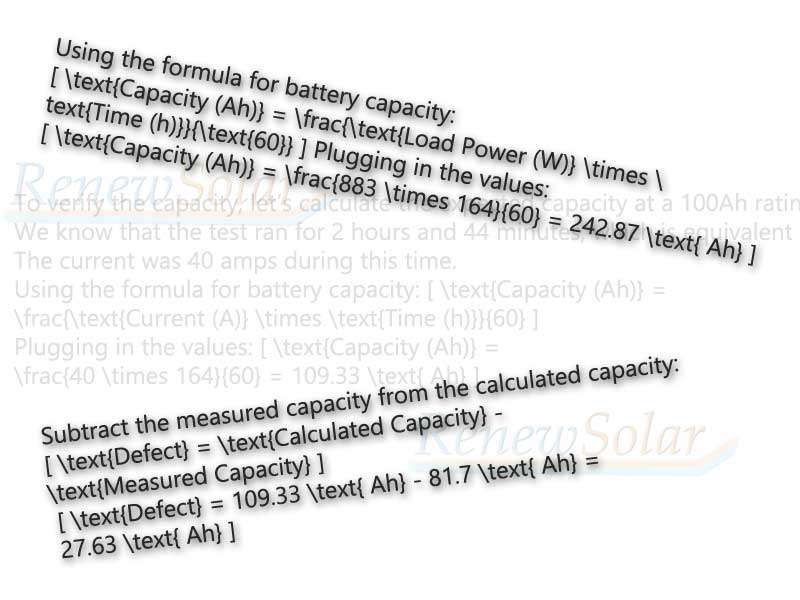When you buy your battery the chance is that you would want to test its capacity to ensure that you are not being ripped off. or there is no defect in the battery.
The problems that you may have is that you could end up with a range of problems when capacity testing so you need to do some math to work out the capacity, effectively double testing.
You need to have some constants in order to work out the capacity, the load and the voltage… (kinda) but certainly the duration ( time).
We can use the formula:
[ Q = \frac{I \times T}{60} ]
where:
- Q is the capacity in ampere-hours (Ah)
- I is the current in amperes (A)
- T is the time in minutes
We can run into issues with load currents if we do not have a calibrated current tester. We run the risk of being off 2% if there is a 1 ah load different. At 4ah that can be a 13% difference. If we look at a 100Ah battery with could lost 13ah of capacity or as little as 2 ah. However we must consider both the voltage and current will result in differing results depending on how accurate or inaccurate they are.
if we know the watts being used and the time (duration) we can then work out the capacity ourselves.
To verify the capacity, let’s calculate the expected capacity at a 100Ah rating: We know that the test ran for 2 hours and 44 minutes, which is equivalent to 164 minutes.
The current was 40 amps during this time.
Using the formula for battery capacity: [ \{value}{Capacity (Ah)} = \frac{\{value}{Current (A)} \times \{value}{Time (h)}}{60} ]
Plugging in the values: [ \{??}{Capacity (Ah)} = \frac{40 \times 164}{60} = 109.33 \text{ Ah} ]
- Voltage (V): 25.6V
- Duration (T): 2 hours and 46 minutes (which is equivalent to 166 minutes)
- Load (I): 41.2803515 amps
=114.016Ah Capacity
Therefore when we look at the math with a current load of 38 amps this is approximately 103.87Ah.

No responses yet